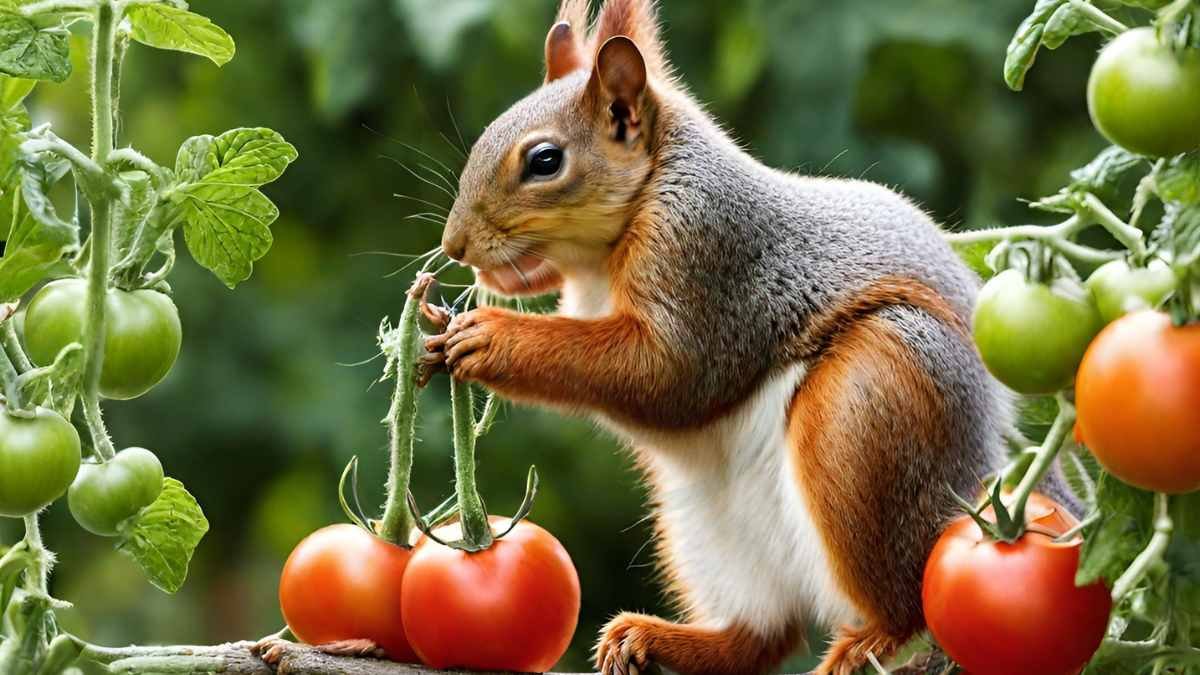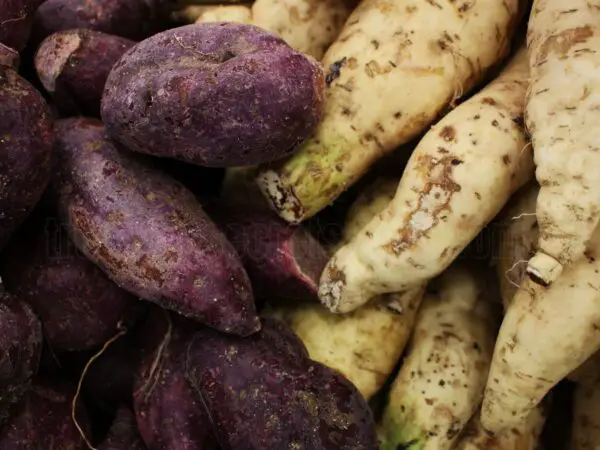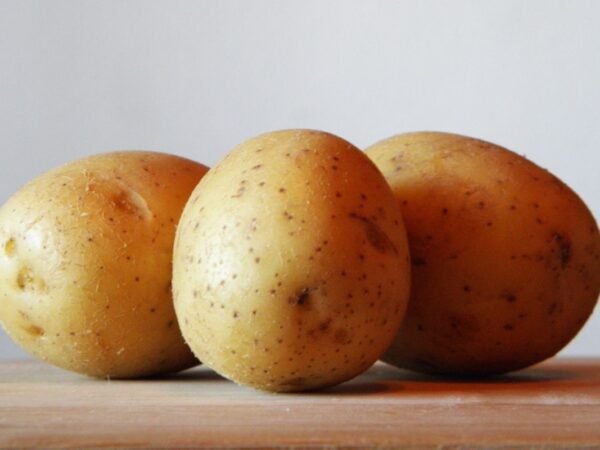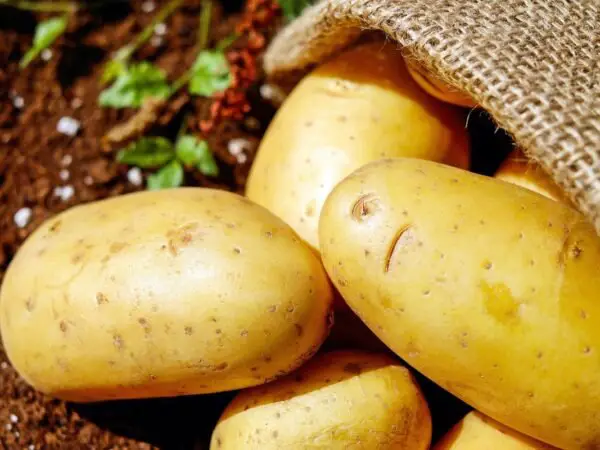Are squirrels wreaking havoc on your tomato plants? Don't worry, I've got you covered. With a few simple strategies, you can keep those pesky ground squirrels out of your gardens, protect your precious tomatoes, and fruit.
One effective method is to use physical barriers like wire mesh or netting to cover your tomato plants and garden beds. Another option is to plant herbs like mint or basil around your tomatoes, as squirrels tend to avoid strong-smelling plants. Additionally, you can try sprinkling cayenne pepper or garlic powder around the base of your plants to deter squirrels with their potent odor. By implementing these tactics, you can enjoy a squirrel-free harvest of delicious tomatoes all season long.
Ready to safeguard your tomato plants and ensure a bountiful harvest? Keep exploring for more expert tips and tricks to protect your garden from unwanted pests like ground squirrels and tree squirrels.
Key Takeaways
- Understand squirrel behavior to effectively deter them from tomato plants.
- Implement natural deterrents like spicy sprays or predator urine to repel squirrels.
- Use physical barriers such as fences or netting to protect tomato plants from squirrel damage.
- Practice companion planting with strong-smelling herbs like mint to discourage squirrels from your garden.
- Utilize water deterrents like motion-activated sprinklers to startle squirrels away from your tomato plants.
- Consider alternative feeding strategies by providing a separate area with squirrel-friendly food.
Understanding Squirrel Behavior

Signs of Damage
Identify chewed fruits or missing tomatoes as signs of tree squirrels or ground squirrels damage. Look for uprooted plants or disturbed soil near tomato beds. Notice half-eaten tomatoes left behind by squirrels.
Seeking Food Sources
Understand squirrels' attraction to ripe tomatoes in search of food. Recognize squirrels' foraging behavior around tomato plants. Observe squirrels climbing or jumping onto tomato vines.
Territory Exploration
Watch squirrels exploring the garden for potential food sources. Monitor squirrels marking territories near tomato plants. Note squirrels' repeated visits to specific areas in the garden.
Natural Deterrents
Hot Pepper Spray
Apply hot pepper spray on and around tomato plants to deter squirrels. Create a natural deterrent using spicy ingredients to repel squirrels effectively. Homemade pepper spray is a safe and efficient solution against squirrel intrusion.
Predator Urine
Utilize predator urine around tomato plants to establish a scent barrier that deters squirrels. Strategically apply predator urine to mimic the presence of predators in the garden, keeping squirrels away. Consider purchasing predator urine products for convenient application.
Owl Sculptures
Position owl sculptures near tomato plants as visual deterrents to scare off squirrels effectively. Realistic owl decoys create an illusion of a predator's presence, deterring squirrels from approaching the plants. Motion-activated owl sculptures offer heightened effectiveness in repelling squirrels.
Physical Barriers
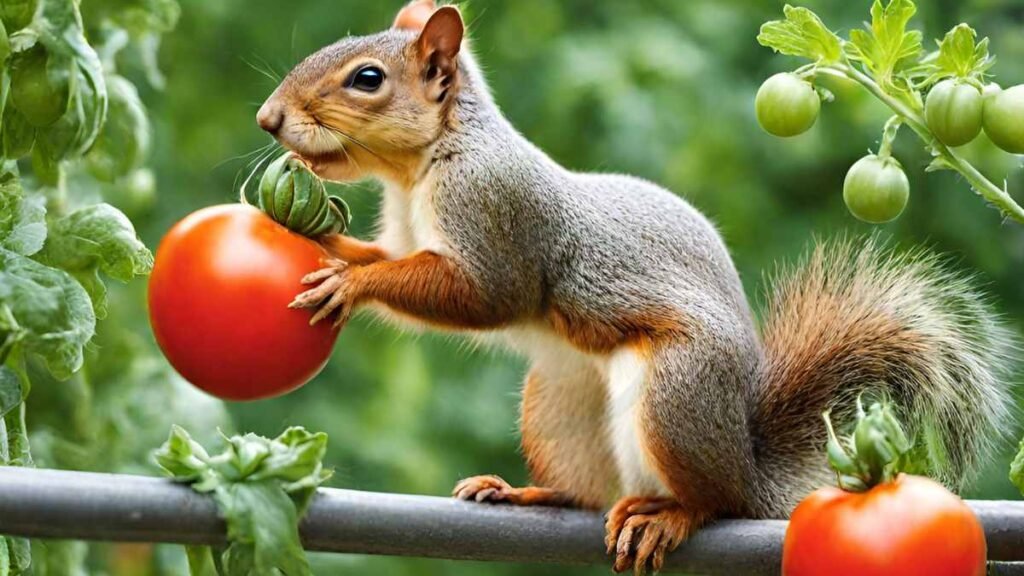
When dealing with squirrels in your tomato plants, consider utilizing physical barriers as an effective method. Installing fences around the garden can deter squirrels from accessing and damaging your precious tomato plants. Choose sturdy materials for the fences to withstand squirrels' attempts to breach them.
Consider adding electric fencing as an extra layer of protection against squirrels. This type of fencing can provide a mild shock to deter squirrels effectively. By incorporating these physical barriers, you create a formidable defense line against squirrel invasions in your tomato garden.
Fencing Solutions
- Install fences around the garden
- Choose sturdy fencing materials
- Consider adding electric fencing
Protective Cages
To ensure maximum protection for your tomato plants, using protective cages is another viable solution. These cages act as a shield, preventing squirrels from reaching and damaging the fruits. Securely install wire mesh cages around individual tomato plants to keep squirrels at bay effectively.
Opt for adjustable cages that allow easy access for maintenance and plant care. These cages not only protect your tomato plants but also provide a convenient way to tend to them without compromising on security against pesky squirrels.
Companion Planting
Beneficial Plants
Plant marigolds or garlic around tomato beds to repel squirrels naturally. These plants emit odors that squirrels find unpleasant, keeping them away from your precious tomato plants. companion planting with herbs like basil can act as a natural deterrent against squirrels.
Consider exploring the use of strong-scented plants such as lavender or mint as a barrier against squirrel intrusion. These aromatic plants not only add beauty to your garden but also serve as effective repellents. By strategically placing these companion plants around your tomatoes, you create a protective shield against squirrel damage.
- Pros:
- Natural and chemical-free method
- Enhances the overall aesthetics of your garden
- Provides additional benefits such as pest control
- Cons:
- Requires some planning and knowledge of companion planting
- Effectiveness may vary depending on squirrel population in the area
Water Deterrents
Motion-Activated Sprinklers
Set up motion-activated sprinklers to startle squirrels away from tomato plants. Position them strategically for maximum coverage. Use water as a humane deterrent to discourage squirrels from approaching.
Consider the benefits of using motion-activated sprinklers:
- Effectively startles squirrels without causing harm
- Provides continuous protection for tomato plants against squirrel intrusion
Think about the drawbacks of motion-activated sprinklers:
- Requires regular monitoring and maintenance to ensure proper functioning
- May not be effective in areas with heavy rainfall or where water conservation is a concern
Utilize water as a form of deterrence against squirrels:
- Ensure that the sprinklers are connected to a reliable water source.
- Adjust the sensitivity settings of the sprinklers based on squirrel activity levels.
- Test the sprinklers regularly to confirm they are functioning correctly.
Remember, maintaining consistency in using water deterrents can significantly reduce squirrel damage to tomato plants.
Alternative Feeding Strategies

Offering Food Sources
Provide alternative food sources like bird feeders to divert squirrels' attention. Set up a separate feeding station with nuts or seeds away from your precious tomato plants. Implementing a designated area with squirrel-friendly treats can effectively keep them occupied and away from your garden.
Consider placing bird feeders filled with seeds or nuts in a different area of your yard to attract squirrels away from your tomato plants. By offering these alternative food sources, you can help satisfy the squirrels' hunger without them turning to your vegetable garden for a meal.
Creating a feeding station specifically for squirrels can be an effective strategy to deter them from targeting your tomato plants. Fill the station with their favorite treats such as nuts, seeds, or even fruits, ensuring they have a tempting option that keeps them away from your crops.
Using Pets as Deterrents
Dogs in the Garden
Introducing a dog to the garden can be an effective way to keep squirrels away from your tomato plants. Training the dog to patrol the area and chase off rodents can significantly reduce squirrel activity. Consider adopting a breed with hunting instincts, such as terriers or hounds, for optimal results.
Having a dog around not only provides companionship but also serves as a natural deterrent to squirrels. The presence of a canine companion can create a sense of threat for rodents, discouraging them from venturing near your precious tomato plants. Dogs are agile and quick, making them excellent at chasing away unwanted pests.
- Pros:
- Dogs offer natural pest control without the need for harmful chemicals.
- Canines provide added security and companionship in the garden.
- Cons:
- Some breeds may dig up the garden unintentionally.
- Requires time and effort to train the dog effectively.
Training your furry friend to protect your tomato plants is a proactive approach that benefits both your garden and your pet. By incorporating canine assistance, you not only safeguard your plants but also enhance the overall experience of gardening with a loyal companion by your side.
Cats in the Garden
Utilizing cats as part of your pest management strategy can also help deter squirrels from invading your tomato plants. Cats are natural hunters and their presence alone can keep rodents at bay. Consider adopting a cat with a strong prey drive for maximum effectiveness.
When introducing cats into your garden, ensure they have access to strategic locations where squirrels tend to frequent. Cats are stealthy predators that can help control rodent populations while enjoying their natural hunting instincts. Their agility and hunting skills make them valuable assets in protecting your garden.
- Key Information:
- Cats are independent creatures that require minimal supervision.
- Ensure that your cat has a safe outdoor environment to roam freely.
Incorporating cats into your gardening routine offers dual benefits of pest control and companionship. By leveraging feline instincts, you create a harmonious ecosystem where cats thrive as hunters, keeping pesky rodents away from your beloved tomato plants.
Regular Maintenance Tips
Checking for Vulnerabilities
Inspect the garden for entry points or gaps that squirrels can exploit. Seal off any openings in fences or structures to prevent squirrel intrusion. Identify weak spots in protective measures and reinforce them against squirrel attacks.
- Check for gaps in fences or structures
- Seal off any openings to prevent entry
- Strengthen protective measures against squirrels
Harvest Timing
Harvest tomatoes promptly when they ripen to avoid attracting squirrels. Monitor tomato plants regularly and pick fruits before squirrels target them. Time your harvests strategically to minimize interference from squirrels.
- Harvest ripe tomatoes promptly
- Monitor plants regularly to pick fruits early
- Strategically time your harvests
Community Approaches
Sharing Solutions
Gardeners can share successful squirrel deterrent methods within the community to protect tomato plants. By exchanging experiences, effective strategies can be implemented collectively. Engaging in online forums or social media platforms allows for a wider sharing of tips and tricks.
Collaborating with neighbors on squirrel prevention can strengthen the defense against these pests. Together, neighbors can create a unified front by combining various tactics to safeguard tomato plants. This collaborative effort not only deters squirrels effectively but also fosters a sense of community support among gardeners.
- Implementing motion-activated sprinklers
- Using natural repellents like spicy sprays or predator urine
- Installing physical barriers such as netting or fences
Closing Thoughts
By understanding squirrel behavior and implementing natural deterrents, physical barriers, companion planting, water deterrents, alternative feeding strategies, using pets as deterrents, regular maintenance tips, and community approaches, you can effectively protect your tomato plants. Remember to stay vigilant and proactive in applying these methods to keep those pesky squirrels at bay. Your garden will thank you for the effort you put into safeguarding it against these furry intruders.
Take charge of your garden's protection today by combining these strategies and adapting them to suit your specific needs. With a little persistence and creativity, you can enjoy a bountiful harvest of tomatoes without the constant worry of squirrel damage. Your thriving tomato plants will be a testament to your dedication and resourcefulness in maintaining a squirrel-free garden.
Frequently Asked Questions
How can I understand squirrel behavior to keep them out of my tomato plants?
Understanding squirrel behavior is key to deterring them effectively. Squirrels are agile climbers and jumpers, so they can reach high places easily. They are also persistent and curious creatures, always on the lookout for food sources.
What are some natural deterrents I can use to keep squirrels away from my tomato plants?
Natural deterrents like predator urine, hot pepper flakes, or garlic spray can help repel squirrels. These scents and tastes are unpleasant to squirrels and can discourage them from approaching your tomato plants.
Are physical barriers effective in preventing squirrels from accessing my tomato plants?
Yes, physical barriers like wire mesh cages or netting can be highly effective in protecting your tomato plants from squirrels. Make sure the barriers are sturdy and properly installed to prevent squirrels from gaining access.
How does companion planting help in keeping squirrels away from tomato plants?
Companion planting involves growing certain plants near your tomatoes that naturally repel squirrels, such as marigolds or garlic. The strong scents of these companion plants can mask the smell of tomatoes, making the area less attractive to squirrels.
Can water deterrents help in deterring squirrels from my tomato plants?
Water deterrents like motion-activated sprinklers can startle squirrels when they approach your tomato plants. The sudden burst of water mimics a threat, teaching the squirrels to avoid the area. This method is effective and harmless to both plants and animals.
Image Source: Paid image from CANVA

